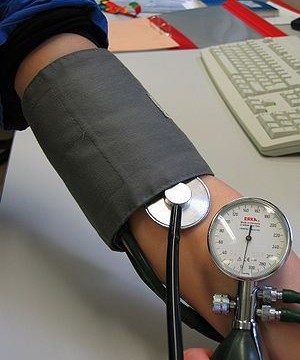What is Hypertension?
Preventing hypertension in pregnancy is an important part of the well being of both the mother and the baby. Defined as abnormally high blood pressure, hypertension during pregnancy can be dangerous. It can decrease the flow of blood to the placenta thereby reducing the baby’s oxygen supply, it can cause a placenta abruption or premature delivery and the mother can even be at risk for cardiovascular disease years after pregnancy. Hypertension can even lead to preeclampsia.

Preventing hypertension in pregnancy, therefore, is paramount to the health and welfare of the mother and child. If you suffer from high blood pressure and you’re considering having a baby, discuss the risks with your doctor before becoming pregnant. Some blood pressure lowering drugs are considered to be safe to take during pregnancy while others are not. The risks of high blood pressure don’t suddenly go away during pregnancy so it is important that you continue to treat it according to your doctor’s directions.
Some women are more at risk for developing hypertension in pregnancy. If you are over 40 or younger than 20 your risk goes up. It is also higher for women of African descent. Being overweight, having diabetes or lupus, a poor diet and previous pregnancies with either hypertension or preeclampsia can also increase your risk.
Prevention of Hypertension
Fortunately there are six easy steps women can take to prevent hypertension in pregnancy:
Know your blood pressure before pregnancy. By finding out your pre-pregnancy blood pressure you have a good baseline by which to compare your pregnant blood pressure levels.
Reduce your salt intake. This is good advice for anyone, but especially women who are trying to prevent hypertension while pregnant. Avoid processed foods as they are very high in sodium.
Get active. Unless your doctor advises against it, there’s no reason why you can’t be moderately active while pregnant. Even moderate exercise will help regulate your blood pressure.